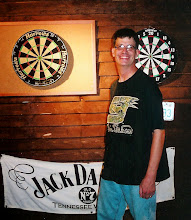Wednesday, August 08, 2012
I just returned a DVD to the library, one I've been wanting to see; yet another car-culture video, but this time a documentary about the late Formula One driver Ayrton Senna. It has been touted in the press as a video not to be missed. I can truly confirm this. The thing is, though, it puts a point on a lot of other truths. Namely, that life here in 2012 is not nearly what it has been, even in my lifetime. Just to fill you in, the late 80s and early 90s were a time in Formula One, and other forms of racing where going faster was less about the talent of the driver and team, and more about the extent of your on-board electronic controls; at least for a time, before the FIA, the governing body in Formula One, realized that the cars were becoming such that you could plug almost anyone into the seat of one of the Formula One cars of this era, and grab a championship. And after the FIA banned, for example, electronically controlled suspensions, it became apparent once again who the truly gifted teams and drivers were. It was interesting to note that Senna's McLaren Honda team was rather alarmed in this period by the ascendancy of Benetton-Ford's young driver, a fellow by the name of Michael Schumacher, who, to date, has won the Formula One World Championship seven times, and has been tagged as one of the greatest drivers ever. "He's not supposed to be winning in THAT," you could almost hear them audibly say, "he's gotta have his trial-by-fire, just like everybody else." And in some cases, it really was trial-by-fire, as in the case of Niki Lauda, who while practicing for the 1976 German Grand Prix, was involved in an accident and severely burned and disfigured. Returning to my point, life in general here in 2012 seems to be considerably "away from the edge," so to speak. As a by-product of the economy, it seems to be the sanest thing to do, but....well....where's the fun in THAT?! And what does it prove? In prior periods, even in periods of great economic distress, advances were, none-the-less made via that ATTEMPT to move forward; we NEEDED to push the boundaries, and see what was out there. It mattered that we tried. This time, we seem to be so overtaken by the fear of failure, that advances will very likely be long in coming. And the last thing we need, with all due respect to computer and software manufacturers, is a faster computer, or a more awesome cell phone. In the final analysis of Senna, the verdict was that the Williams-Renault Senna was driving when he died in 1994 was, shall we say, "artificially" competent; strip away the electronic controls, as the constructors were forced to after the FIA ban on such devices, and the Williams was basically a second-rate car. Perhaps I should play Devil's Advocate to myself for a moment, and say that living safely IS the only sane thing to do at times. Do people always need to die to prove a point? Perhaps not, but it still means something that someone needs to take the risks and find out where the boundaries are. And is greatness still defined in the same way as it ever was? Getting back for a moment to Michael Schumacher, he and Senna were beginning to duke it out in the late 80s and early 90s, thus Schumacher proved his mettle in "overlapping" eras, so to speak. Schumacher has been talented both with and without massive doses of electronics, and with horsepower at his disposal that has fluctuated over the years. The question has been asked of Schumacher regarding how great he would have been in the era of Fangio, Nuvolari and Bernd Rosenmeyer in the 30s, 40s and 50s, and, of course, we shall never know. Except to say that genuine talent is genuine talent, whether or not you disguise it behind a mask of electronic controls, no matter what the point of those controls may be, either for safety, or to go faster. The point was made at the end of the movie that there has not been a single death in Formula One racing since Senna's demise in 1994. Can we say that for all forms of racing? No, we only need to look as far as the death of Dale Earnhardt, Sr. at the 2001 Daytona 500 to prove that is not the case. And lap records, for example, for Germany's Nurburgring, are still standing from the 1970s and 80s. The most recent record among race cars is from 2009, and was well over 8 minutes. (The Nurburgring is a 12+-mile course.) Oddly, among production vehicles, the Radical SR8 is the record-holder, at a tick under 7 minutes. What DOES it all mean? Is our edge still there? Are our purposes merely different in a new age? Could be. Given what the world was like in the 70s and 80s among production cars, especially as compared to now, it seems almost impossible to say.
Subscribe to:
Post Comments (Atom)

No comments:
Post a Comment